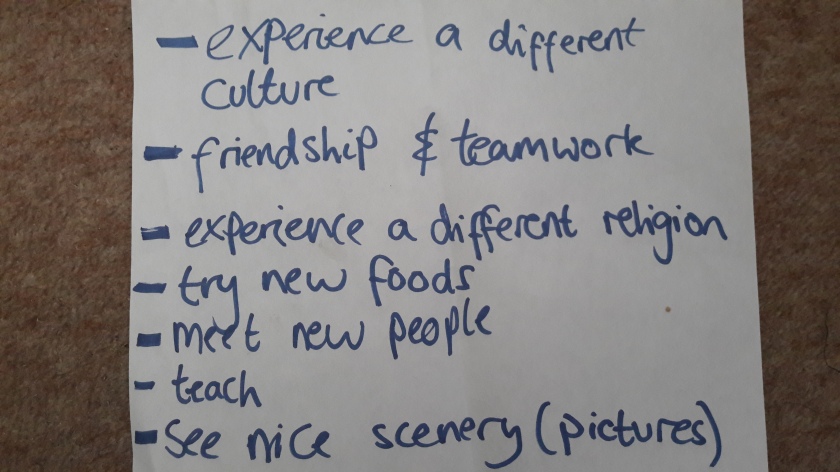“Jack of all trades, master of none” is an often heard phrase related to people have a broad understanding and ability in a lot of activities, but not a specialist in any.
It suggests that although a person can be good across a range of domains they cannot be a master of all of them.
Leadership can often be a place where you have to draw on all your knowledge and skills, making you feel like a “jack of all trades”. You need a broad breadth of knowledge and interests to draw on that enable the creation of the conditions for people to thrive, set the vision, understand people, and do the practical elements of actually leading people. These skills and attributes develop through your experience, training and development, influenced by your personal characteristic and approach to learning. But do you really master all of them?
Or is it even important to do so?
The ancient Greeks called those who mastered a great range of subjects “Polymaths”, people like Aristotle, who wrote extensively and expertly on subjects as diverse as astronomy, anatomy, geography, geology, physics, meteorology, and zoology.

The term comes from two Greek words “Poly” meaning many, and “Mathma” meaning a unit of Knowledge.
Throughout history we have utilized the term to describe great people whose expertise stretches across many knowledge domains; Leonardo De Vinci (Math, Art, technology, invention), Alexander Von Humboldt (geographer, naturalist, explorer, philosophy, politics and science), Paul Robeson (acting, civil rights, athlete), Theodore Roosevelt (Hunter, explorer, politics, naturalist, statesman) and even Steve Jobs (technology, Business, media),
These people not only have a breadth of knowledge and interests, they also have developed a significant depth of knowledge about these subjects. Araki (2015, 2018) identified that Breadth and Depth are the two most identifiable elements of polymathic behaviour. But the key element that really stands the polymath out, is their ability to seamlessly integrate all their domains of expertise. Being able to transition between one and another, creating links in their knowledge and seeing easily how they can help each other in practice.
Already a lot of leadership training involves the development of skill across a range of domains, in the Military for instance it ranges from the practical, to historical, to geographical, strategic and application of skills, but does it lead to expertise or integration of these skills combined at a high level?
Would the encouragement of polymathic behaviours in future leaders benefit their ability to be more agile, gaining greater understanding of all their interests to a level where they are able to integrate the knowledge into better planning, decision making and development of those they lead. Think about a sports team leader, who understands strategy, or can see the pitch in the context of historical battles or past games, or who can relate easily to changes in society or individuals because their interests have been allowed to stretch and include counselling or psychology, politics and sociology?
It could be useful to develop a leader’s knowledge pool to include the arts and philosophy alongside traditional subjects, allowing them to follow their own interests, helping them to think more polymathic, integrating a broad, depth of knowledge into their practice and ensuring that future leaders can be imaginative and decisive.

Bruce Lee was attributed to the quote “ Fear the man who has practiced 1 kick 1000 times, not the man who has practiced 1000 kicks, once!” which suggests it is better to become a master of one thing rather than mediocre at many. But why can’t we work hard at becoming a master of more than one? Practicing 1000 kicks, a thousand times? If we are interested and dedicated we can develop skill in many domains, as proved by De Vinci and many others, in fact Bruce Lee himself mastered a number of different martial arts while devising his own. Jeet Kune Do was his life’s work, but grew from his great knowledge and dedication of lots of practical martial arts, philosophy, techniques and influences, in fact it integrated his knowledge across many domains, using everything at his disposal to create something new, in the manner of a true polymath!
Historical figures can provide the inspiration for change, but over the centuries we have come to appreciate the artisan, just checkout the resurgence of artisan bakers, baristas and brewers, but is it now time to learn from the polymaths, to create a new style of a more responsive integrated leadership and learning?
Remember, Aristotle taught Alexander the Great, teaching him across a range of domains of knowledge, encouraging polymathic behaviour in him, allowing him to see the connections between subjects and integrating them in his thinking….and look what he managed!

References:
Araki, M. E. (2018). Polymathy: A new outlook. Journal of Genius and Eminence, 3(1), 66-82
Araki, M. E. (2015). Polymathic leadership: Theoretical foundation and construct development. (Master’s thesis), Pontifícia Universidade Católica, Rio de Janeiro, Brazil





